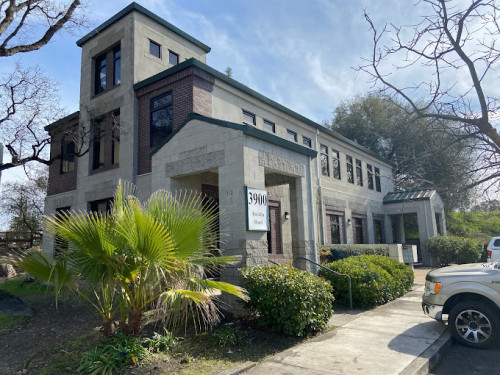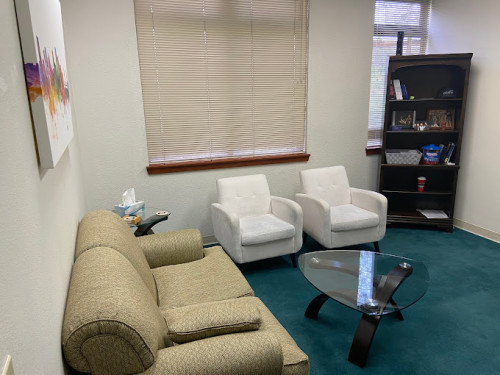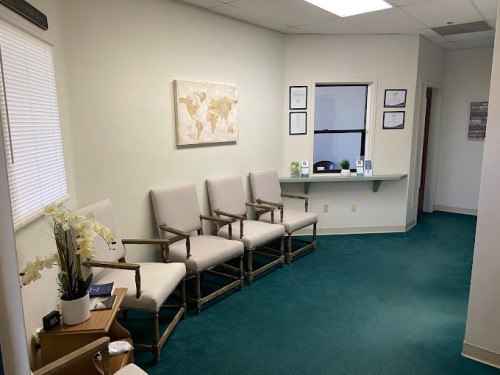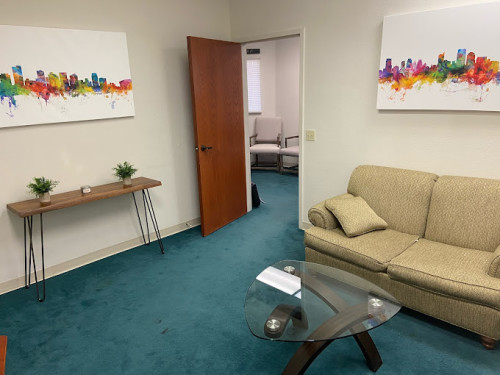






The Pathway Program California
Treatment Focus
This center primarily treats substance use disorders, helping you stabilize, create relapse-prevention plans, and connect to compassionate support.
Primary Level of Care
Outpatient treatment offers flexible therapeutic and medical care without the need to stay overnight in a hospital or inpatient facility. Some centers off intensive outpatient program (IOP), which falls between inpatient care and traditional outpatient service.
This provider hasn't verified their profile's information. Are you the owner of this center? Claim your listing to better manage your presence on Recovery.com.
Treatment Focus
This center primarily treats substance use disorders, helping you stabilize, create relapse-prevention plans, and connect to compassionate support.
Primary Level of Care
Outpatient treatment offers flexible therapeutic and medical care without the need to stay overnight in a hospital or inpatient facility. Some centers off intensive outpatient program (IOP), which falls between inpatient care and traditional outpatient service.
Private Pay
You pay directly for treatment out of pocket. This approach can offer enhanced privacy and flexibility, without involving insurance. Exact costs vary based on program and length of stay. Contact the center for specific details.
The Pathway Program California
The Pathway Program California
About The Pathway Program California
The Pathway Program is a specialized outpatient program designed for adolescents, teens, and young adults experiencing a substance use disorder, with locations serving Phoenix and surrounding areas in Arizona in addition to Sacramento and Northern California. Their Rocklin, California program offers a personalized treatment experience for clients, blending 1-on-1 evidence-based drug counseling with peer support groups, integrating fun and socialization into the recovery process. Their 6-12 week programs place a strong emphasis on family involvement, incorporating family therapy and parent support groups in addition to long-term aftercare services.
Ideal for Teens and Young Adults
The Pathway Program has over 30 years of experience in working with teens, young adults, and their families using an enthusiastic approach to sobriety. Their program is tailored to address the specific needs and challenges faced by teens ages 13-17, and young adults ages 18-26. Understanding that the decision to try drugs or alcohol comes in large part from teens looking for social acceptance and the desire to have fun, they integrate strong peer support and fun sober activities in their program.
Their intensive outpatient program (IOP) offers daily treatment sessions 5 days per week for 4 hours each day. Young people are grouped with other clients close in age, led by experienced and compassionate certified substance abuse counselors. Each client receives an individually tailored treatment plan to fit their unique circumstances, reviewed and adjusted as needed on a regular basis. Their treatment model is deeply rooted in the principles of the 12-step recovery program, introducing patients to the process with 3 on-site 12-step meetings per week. Additionally, sober social activities are coordinated twice per week to foster peer connection and emphasize the ability to have fun without the use of drugs or alcohol.
Weekly Individual Therapy
In addition to building a strong peer support system, strengthening family relationships, and integrating fun activities, The Pathway Program involves weekly or bi-weekly 1-on-1 therapy sessions. Individual substance abuse counseling provides a safe space for individuals to address topics such as their drug or alcohol use, effects that their use has had on family and relationships, evaluating consequences and potential outcomes, and developing alternative coping mechanisms and life skills. Therapeutic services also include relapse prevention counseling, includes family involvement and provides addiction education.
Family Recovery
The Pathway Program uses a family involvement approach to substance abuse treatment for young people and their families. In addition to regular family counseling sessions focused on education and developing effective communication skills, parents are also provided connection with peers through parent support groups. Weekly support group meetings offer a safe community outlet for individuals to come together and work toward a common solution for parents with teens and young adults experiencing addiction.
Robust Aftercare
Families and clients who have completed their 6-14 week treatment program at Pathway have access to robust and extensive aftercare services, at no cost, for up to 2 years. Aftercare services offer young people continued access to Pathway’s alternative peer groups, sober social events, and parent support groups. Clients can also continue working with their individual counselors in 1-on-1 and family therapy sessions. Regular substance abuse support meetings are also available specifically for alumni.
Center Overview
Treatment Focus
This center primarily treats substance use disorders, helping you stabilize, create relapse-prevention plans, and connect to compassionate support.
Pricing and Program Length
Estimated Center Costs
The cost listed here (Call for Rates), is an estimate of program cost. Center price can vary based on program and length of stay. Contact the center for more information. Recovery.com strives for price transparency so you can make an informed decision.
Levels of Care






Your Care Options
Specializations
Private Therapy
This is an individual therapy that's often available at private therapy clinics. Clients may be able to choose a therapist who best fits their unique needs.
Young Adults
Emerging adults ages 18-25 receive treatment catered to the unique challenges of early adulthood, like college, risky behaviors, and vocational struggles.
Adolescents
Teens receive the treatment they need for mental health disorders and addiction, with the added support of educational and vocational services.
Drug Addiction
Drug addiction is the excessive and repetitive use of substances, despite harmful consequences to a person's life, health, and relationships.
Who We Treat
Men and Women
Men and women attend treatment for addiction in a co-ed setting, going to therapy groups together to share experiences, struggles, and successes.
Young Adults
Emerging adults ages 18-25 receive treatment catered to the unique challenges of early adulthood, like college, risky behaviors, and vocational struggles.
Adolescents
Teens receive the treatment they need for mental health disorders and addiction, with the added support of educational and vocational services.
Approaches
Twelve Step
Incorporating spirituality, community, and responsibility, 12-Step philosophies prioritize the guidance of a Higher Power and a continuation of 12-Step practices.
Family Involvement
Providers involve family in the treatment of their loved one through family therapy, visits, or both–because addiction is a family disease.
Individual Treatment
Individual care meets the needs of each patient, using personalized treatment to provide them the most relevant care and greatest chance of success.
Therapies
1-on-1 Counseling
Patient and therapist meet 1-on-1 to work through difficult emotions and behavioral challenges in a personal, private setting.
Family Therapy
Family therapy addresses group dynamics within a family system, with a focus on improving communication and interrupting unhealthy relationship patterns.
Twelve Step Facilitation
12-Step groups offer a framework for addiction recovery. Members commit to a higher power, recognize their issues, and support each other in the healing process.
Relapse Prevention Counseling
Relapse prevention counselors teach patients to recognize the signs of relapse and reduce their risk.
Substances We Treat
Cocaine
Cocaine is a stimulant with euphoric effects. Agitation, muscle ticks, psychosis, and heart issues are common symptoms of cocaine abuse.
Prescription Drugs
It's possible to abuse any drug, even prescribed ones. If you crave a medication, or regularly take it more than directed, you may have an addiction.
Benzodiazepines
Benzodiazepines are prescribed to treat anxiety and sleep issues. They are highly habit forming, and their abuse can cause mood changes and poor judgement.
Psychedelics
Hallucinogenic drugs—like LSD—cause euphoria and increased sensory experiences. When abused, they can lead to depression and psychosis.
Drug Addiction
Drug addiction is the excessive and repetitive use of substances, despite harmful consequences to a person's life, health, and relationships.
Heroin
Heroin is a highly addictive and illegal opioid. It can cause insomnia, collapsed veins, heart issues, and additional mental health issues.
Synthetic Drugs
Synthetic drugs are made in a lab, unlike plant-based drugs like mushrooms. Most synthetic drugs are either stimulants or synthetic cannabinoids.
Methamphetamine
Methamphetamine, or meth, increases energy, agitation, and paranoia. Long-term use can result in severe physical and mental health issues.
Languages
Aftercare
Care Designed for Your Needs
Amenities
Special Considerations
Young Adults Program
Programs for young adults bring teens 18+ together to discuss age-specific challenges, vocational and educational progress, and successes in treatment.





